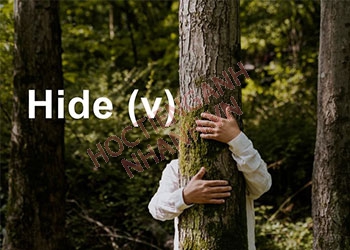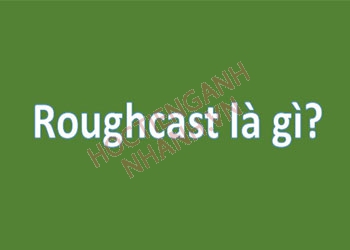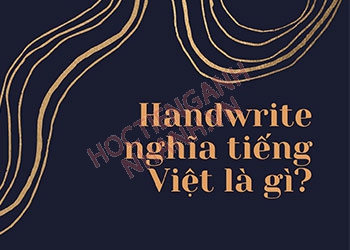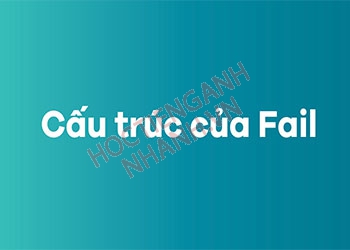Quá khứ của disprove là gì? Mẹo chia động từ disprove đơn giản dễ hiểu
Quá khứ của disprove và quá khứ phân từ của disprove là disproved. Ngoài ra, các bạn cần nắm thêm một số dạng chia động từ disprove khác.
Disprove là ngoại động từ không nằm trong động từ bất quy tắc, vậy nên quá khứ của disprove cũng tương tự như các động từ khác là thêm đuôi “ed” khi ở trạng thái V2 hay V3. Ngoài ra, trong tiếng Anh một động từ có thể chia theo rất nhiều thì, cho nên người học tiếng Anh cần nắm rõ điều này. Và nếu như đến bây giờ bạn vẫn đang còn mơ hồ về vấn đề này thì bạn đừng lo nhé! Bài viết này sẽ đưa đến bạn đầy đủ kiến thức về disprove.
Để nắm bắt được hết các vấn đề liên quan đến quá khứ của disprove hãy cùng hoctienganhnhanh tìm hiểu bài viết ngay dưới đây nhé!
Disprove nghĩa tiếng việt là gì? Cách phát âm chuẩn
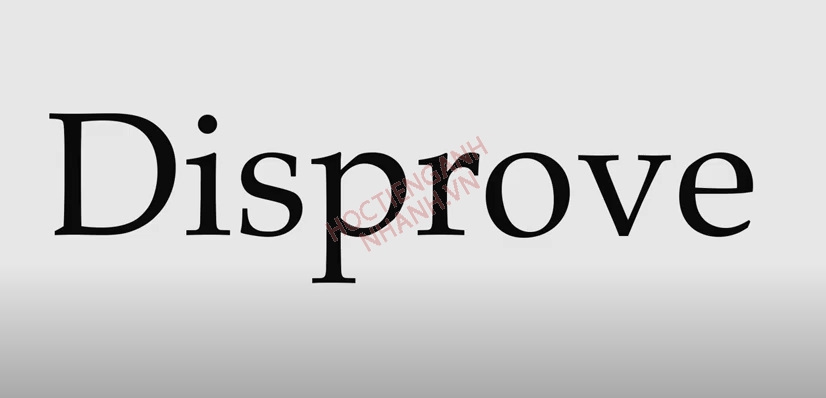
Disprove có nghĩa là bác bỏ/ phản bác ý kiến của ai đó
Disprove trong tiếng Việt có nghĩa là bác bỏ. Đây là hành động hoặc quá trình chứng minh một ý kiến, giả thuyết, hoặc quan điểm là không đúng hoặc sai lầm.
Ví dụ:
- The new evidence presented at the trial completely disproves the defendant's alibi. (Bằng chứng mới được trình bày trong phiên tòa hoàn toàn bác bỏ chứng cớ của bị cáo)
- The expert's research findings disprove the popular myth that eating carrots improves night vision. (Những kết quả nghiên cứu của chuyên gia bác bỏ hoàn toàn lưu ý phổ biến rằng ăn cà rốt cải thiện tầm nhìn trong đêm)
Disprove có nghĩa là chứng minh sai một vấn đề nào đó.
Ví dụ:
- The scientist conducted a series of experiments to disprove the hypothesis that plants can grow without sunlight. (Nhà khoa học tiến hành một loạt các thí nghiệm để chứng minh sai giả thuyết rằng cây có thể phát triển mà không cần ánh sáng mặt trời)
- The study's findings strongly disprove the notion that high sugar intake is not linked to an increased risk of diabetes. (Những kết quả của nghiên cứu mạnh mẽ chứng minh sai quan niệm rằng tiêu thụ đường cao không liên quan đến nguy cơ mắc bệnh tiểu đường tăng cao)
Quá khứ của disprove là gì?
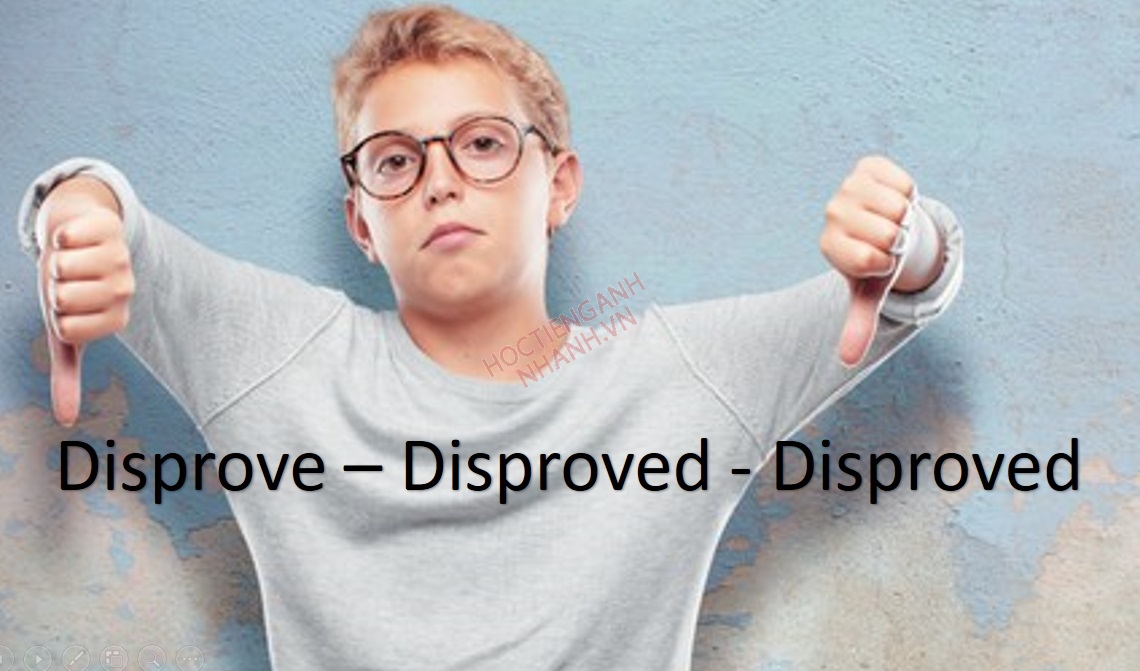
Quá khứ của disprove là disproved và quá khứ phân từ cũng là disproved
Quá khứ của disprove là disproved. Disprove là một động từ trong tiếng Anh có nghĩa là "bác bỏ" hoặc "chứng minh sai". Khi chia động từ này về quá khứ, chúng ta sử dụng dạng "disproved".
Ví dụ:
- The detective's investigation disproved the suspect's alibi by gathering evidence that placed them at the scene of the crime. (Cuộc điều tra của thám tử đã bác bỏ chứng cứ chứng minh của đối tượng bị tình nghi bằng cách thu thập bằng chứng cho thấy họ có mặt tại hiện trường tội phạm)
- The scientist's experiment disproved the hypothesis that a certain chemical compound would cure the disease, as the results showed no significant improvement in the patients' conditions. (Cuộc thử nghiệm của nhà khoa học đã bác bỏ giả thuyết rằng một hợp chất hóa học nhất định sẽ chữa trị bệnh, vì kết quả cho thấy không có cải thiện đáng kể trong tình trạng của các bệnh nhân)
Dạng quá khứ của disprove, tức là disproved, là điều quan trọng khi trình bày các sự kiện hoặc hành động đã xảy ra trong quá khứ.
Bảng chia các dạng động từ disprove trong tiếng Anh
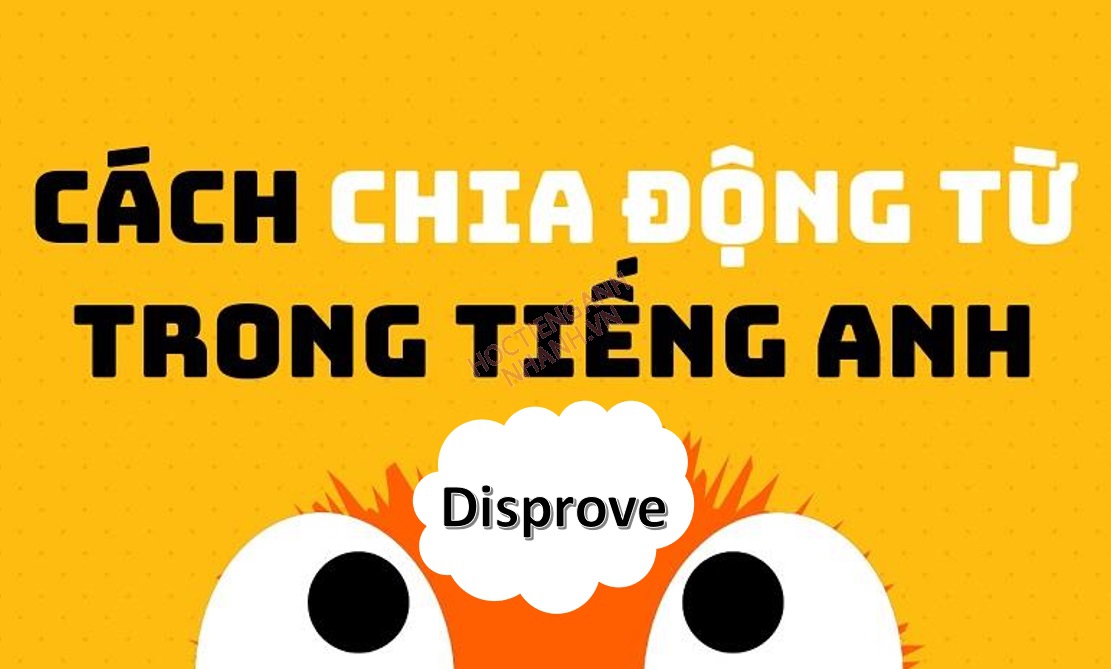
Tổng hợp cách chia động từ disprove trong tất cả các thì
Trình bày các cấu trúc câu chia theo các thì cơ bản và cấu trúc đặc biệt trong ngữ pháp tiếng Anh để giúp người học tiếng Anh hiểu rõ và phân biệt giữa dạng nguyên thể và dạng quá khứ đơn của động từ disprove. Điều này sẽ giúp củng cố kiến thức ngữ pháp và nâng cao khả năng sử dụng đúng ngữ cảnh trong việc diễn đạt ý kiến hoặc bác bỏ một sự kiện, giả thuyết hoặc tuyên bố trong quá khứ.
|
Dạng chia của động từ disprove |
Hình thức |
Ví dụ |
|
To - infinitive |
to disprove |
The scientist conducted a series of experiments to disprove the widely accepted theory. (Nhà khoa học đã tiến hành một loạt các thí nghiệm để bác bỏ lý thuyết được chấp nhận rộng rãi) |
|
Bare infinitive (nguyên mẫu không to) |
disprove |
The archaeological findings disproved the assumption that the ancient civilization was primitive and lacked advanced technologies. (Những khám phá khảo cổ học đã bác bỏ giả định rằng nền văn minh cổ đại đó là thô sơ và thiếu công nghệ tiên tiến) |
|
Gerund (động danh từ) |
disproving |
She is currently in the process of disproving the hypothesis with her ongoing research. (Hiện tại, cô đang trong quá trình bác bỏ giả thuyết thông qua nghiên cứu liên tục của mình) |
|
Present participle (Phân từ II) |
disproved |
The expert's analysis disproved the popular myth about the effectiveness of the product. (Phân tích của chuyên gia đã bác bỏ lưu ý phổ biến về hiệu quả của sản phẩm) |
|
Past participle (Phân từ III) |
disproved |
The research findings have effectively disproved the long-standing belief. (Những kết quả nghiên cứu đã hiệu quả bác bỏ niềm tin đã tồn tại lâu dài) |
Cách chia động từ disprove cơ bản trong tiếng Anh

Cách chia động từ disprove
Dưới đây là bảng tổng hợp các cách chia động từ disprove ở dạng quá khứ, hiện tại và tương lai, tùy theo thời điểm của hành động. Bảng này sẽ giúp người học tiếng Anh áp dụng trong việc giải bài tập và đối phó với các đề thi quan trọng.
|
Bảng chia động từ |
||||||
|
Số |
Số ít |
Số nhiều |
||||
|
Ngôi |
I |
You |
He/She/It |
We |
You |
They |
|
Hiện tại đơn |
disprove |
disprove |
disproves |
disprove |
disprove |
disprove |
|
Hiện tại tiếp diễn |
am disproving |
are disproving |
is disproving |
are disproving |
are disproving |
are disproving |
|
Quá khứ đơn |
disproved |
disproved |
disproved |
disproved |
disproved |
disproved |
|
Quá khứ tiếp diễn |
was disproving |
were disproving |
was disproving |
were disproving |
were disproving |
were disproving |
|
Hiện tại hoàn thành |
have disproved |
have disproved |
has disproved |
have disproved |
have disproved |
have disproved |
|
Hiện tại hoàn thành tiếp diễn |
have been disproving |
have been disproving |
has been disproving |
have been disproving |
have been disproving |
have been disproving |
|
Quá khứ hoàn thành |
had disproved |
had disproved |
had disproved |
had disproved |
had disproved |
had disproved |
|
Quá khứ hoàn thành tiếp diễn |
had been disproving |
had been disproving |
had been disproving |
had been disproving |
had been disproving |
had been disproving |
|
Tương lai đơn |
will disprove |
will disprove |
will disprove |
will disprove |
will disprove |
will disprove |
|
Tương lai tiếp diễn |
will be disproving |
will be disproving |
will be disproving |
will be disproving |
will be disproving |
will be disproving |
|
Tương lai hoàn thành |
will have disproved |
will have disproved |
will have disproved |
will have disproved |
will have disproved |
will have disproved |
|
Tương lai hoàn thành tiếp diễn |
will have been disproving |
will have been disproving |
will have been disproving |
will have been disproving |
will have been disproving |
will have been disproving |
Đoạn hội thoại có sử dụng quá khứ của disprove
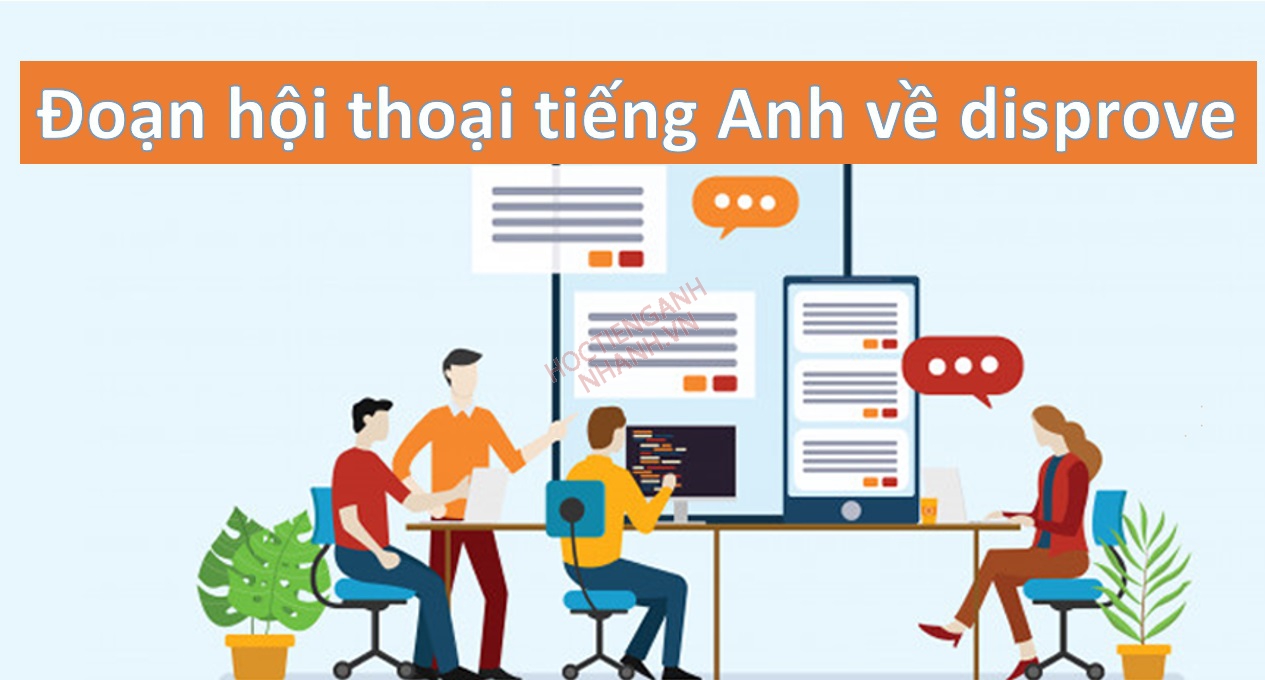
Đoạn hội thoại có sử dụng quá khứ của disprove
A: Hey, have you heard about the rumor that aliens have visited Earth?
B: Yeah, I've heard about it. But I think it's just a baseless claim without any substantial evidence to support it.
A: Well, there have been numerous reports of UFO sightings and alleged encounters with extraterrestrial beings. Doesn't that lend some credibility to the idea?
B: While it's true that there have been countless accounts of UFO sightings and encounters, it's important to approach them with a critical mindset. Many of these sightings can be attributed to misidentifications, hoaxes, or natural phenomena. Without verifiable evidence, it's difficult to conclude that they are indeed caused by extraterrestrial beings.
A: But what about the accounts of individuals who claim to have been abducted by aliens and subjected to experiments? Shouldn't we consider their experiences as evidence?
B: Personal anecdotes, no matter how sincere or compelling, are not considered strong evidence in the scientific community. Human perception can be fallible, and there are well-documented psychological and physiological explanations for experiences like sleep paralysis and false memories that could account for these claims. To establish the reality of extraterrestrial visits, we would need more than individual testimonies.
A: Okay, I understand that personal accounts may not be enough. But what about the alleged government cover-ups and secret operations related to aliens? Doesn't that suggest there's something significant being concealed from the public?
B: Claims of government cover-ups and secret operations related to aliens are often based on speculation and conspiracy theories. While it's true that governments withhold certain information for national security reasons, the leap from classified information to confirming extraterrestrial visitations is a substantial one. It requires credible evidence that directly supports such claims, which is currently lacking.
A: I see your point. So, how do we disprove the existence of aliens visiting Earth?
B: Disproving the existence of aliens visiting Earth is challenging since it's difficult to definitively prove a negative. However, what we can do is evaluate the available evidence critically. Scientists rely on the principles of skepticism, empirical evidence, and the scientific method to assess claims. In the absence of verifiable and reproducible evidence supporting the presence of extraterrestrial life, the scientific consensus leans towards considering these claims unfounded.
A: It seems like a rational approach. So, until there is substantial evidence, it's best to maintain a skeptical stance towards the existence of alien visits.
B: Exactly. It's important to maintain a balance between curiosity and critical thinking. While the search for extraterrestrial life is ongoing and scientifically valid, we must base our beliefs on reliable evidence and avoid jumping to conclusions without proper scrutiny.
Bài tập luyện tập về quá khứ của disprove
Nhằm giúp các bạn hiểu rõ hơn về quá khứ của disprove là gì cũng như cách chia động từ disprove ở các dạng thì khác nhau, Hoctienganhnhanh gửi đến bạn một số bài tập nhỏ sau đây.
Hãy chia dạng động từ đúng để hoàn thành các câu sau:
- I ___________ their theory yesterday. (disprove)
- She ___________ all the claims made by the opposition. (disprove)
- The scientist ___________ the hypothesis during the experiment. (disprove)
- They ___________ the allegations with solid evidence. (disprove)
- The research team ___________ the previous findings. (disprove)
- He ___________ the myth with his extensive research. (disprove)
- We ___________ their argument with logical reasoning. (disprove)
- The study ___________ the commonly held belief. (disprove)
- The professor ___________ the student's theory in front of the class. (disprove)
- They ___________ the rumors with concrete facts. (disprove)
- The lawyer ___________ the witness's statement during cross-examination. (disprove)
- The team of experts ___________ the results of the study. (disprove)
- The documentary ___________ the conspiracy theory. (disprove)
- The historian ___________ the myth surrounding the historical event. (disprove)
- She ___________ the hypothesis with her groundbreaking experiment. (disprove)
- They ___________ the notion with empirical data. (disprove)
- The investigator ___________ the suspect's alibi. (disprove)
- The journalist ___________ the politician's claims. (disprove)
- The mathematician ___________ the conjecture with a counterexample. (disprove)
- The critic ___________ the artist's interpretation of the artwork. (disprove)
Đáp án
- I disproved their theory yesterday.
- She disproved all the claims made by the opposition.
- The scientist disproved the hypothesis during the experiment.
- They disproved the allegations with solid evidence.
- The research team disproved the previous findings.
- He disproved the myth with his extensive research.
- We disproved their argument with logical reasoning.
- The study disproved the commonly held belief.
- The professor disproved the student's theory in front of the class.
- They disproved the rumors with concrete facts.
- The lawyer disproved the witness's statement during cross-examination.
- The team of experts disproved the results of the study.
- The documentary disproved the conspiracy theory.
- The historian disproved the myth surrounding the historical event.
- She disproved the hypothesis with her groundbreaking experiment.
- They disproved the notion with empirical data.
- The investigator disproved the suspect's alibi.
- The journalist disproved the politician's claims.
- The mathematician disproved the conjecture with a counterexample.
- The critic disproved the artist's interpretation of the artwork.
Vậy là bài học ngày hôm nay về quá khứ của disprove là gì đã khép lại. Hy vọng thông qua bài học này các bạn học sinh của hoctienganhnhanh.vn có thể nắm vững cách chia động từ disprove ở dạng quá khứ và nhiều dạng khác nhé! Ngoài ra trong bài học trên ở mỗi điểm ngữ pháp chúng tôi đều đưa ra các ví dụ cụ thể giúp bạn dễ hình dung hơn.
Cuối cùng là chúc các bạn học tốt và đạt điểm cao nhé và đừng quên để lại những nhận xét nhé!

 Ngày thứ 5 tiếng Anh là gì? Cách đọc và viết chuẩn nhất
Ngày thứ 5 tiếng Anh là gì? Cách đọc và viết chuẩn nhất 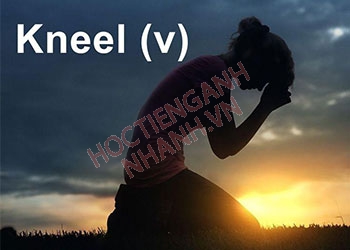 Quá khứ của kneel là gì? Cách chia động từ kneel chính xác nhất
Quá khứ của kneel là gì? Cách chia động từ kneel chính xác nhất  Borrow đi với giới từ gì? Nghĩa và cách dùng chuẩn trong tiếng Anh
Borrow đi với giới từ gì? Nghĩa và cách dùng chuẩn trong tiếng Anh  Vú sữa tiếng Anh là gì? Cách phát âm và các ví dụ liên quan
Vú sữa tiếng Anh là gì? Cách phát âm và các ví dụ liên quan  Màu xanh cổ vịt tiếng Anh là gì? Phát âm và cụm từ liên quan
Màu xanh cổ vịt tiếng Anh là gì? Phát âm và cụm từ liên quan 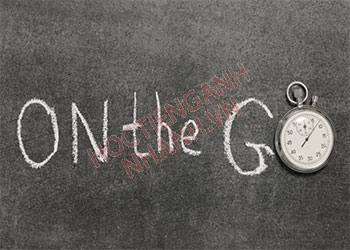 On the go là gì? Ý nghĩa và cách sử dụng cụm từ on the go
On the go là gì? Ý nghĩa và cách sử dụng cụm từ on the go  Con cá mập tiếng Anh là gì? Cách đọc và cụm từ liên quan
Con cá mập tiếng Anh là gì? Cách đọc và cụm từ liên quan  Romantic nghĩa là gì? Cách đọc từ romantic chuẩn như người Anh
Romantic nghĩa là gì? Cách đọc từ romantic chuẩn như người Anh  Listen and Repeat nghĩa là gì?
Listen and Repeat nghĩa là gì?  TOEIC là gì? TOEFL là gì? IELTS là gì? Nên học thi lấy chứng chỉ nào?
TOEIC là gì? TOEFL là gì? IELTS là gì? Nên học thi lấy chứng chỉ nào?  Các trung tâm tiếng Anh tại Hà Nội / TP HCM / Đà Nẵng tốt nhất 2025
Các trung tâm tiếng Anh tại Hà Nội / TP HCM / Đà Nẵng tốt nhất 2025 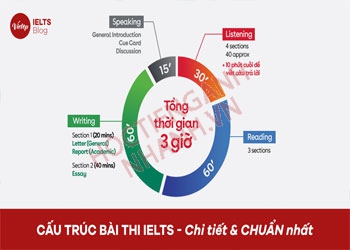 Cách làm bài thi IELTS đạt điểm cao (Reading/ Listening / Writing)
Cách làm bài thi IELTS đạt điểm cao (Reading/ Listening / Writing)  Trung tâm luyện thi IELTS uy tín giá rẻ tốt nhất TPHCM và Hà Nội
Trung tâm luyện thi IELTS uy tín giá rẻ tốt nhất TPHCM và Hà Nội  How old are you nghĩa là gì? Cách trả lời trong tiếng Anh
How old are you nghĩa là gì? Cách trả lời trong tiếng Anh .jpg) Học thì hiện tại tiếp diễn quá dễ trong vòng 10 phút!
Học thì hiện tại tiếp diễn quá dễ trong vòng 10 phút! 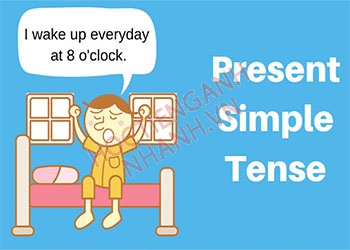 Thì hiện tại đơn ( Present simple): Quy tắc, công thức và cách dùng
Thì hiện tại đơn ( Present simple): Quy tắc, công thức và cách dùng 